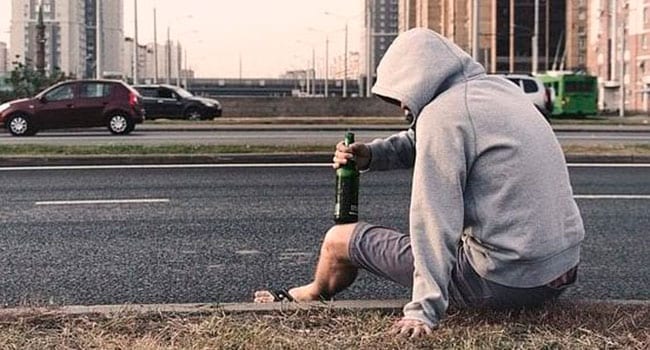 Maclean’s magazine once declared Winnipeg as “Canada’s most racist city.” Now it’s Thunder Bay’s turn.
Maclean’s magazine once declared Winnipeg as “Canada’s most racist city.” Now it’s Thunder Bay’s turn.
Thunder Bay is in turmoil after a report slammed its overstretched police force (if not the entire city) for alleged “systemic racism” towards its Indigenous population.
Meanwhile, Thompson, Man., deals with Indigenous men filling its courts to overflow while Saskatoon confronts a shocking incident of Indigenous children swarming a woman in broad daylight in a public park.
These cities and others have troubled First Nations communities nearby and residents flow between city and reserve. While these cities have growing successful Indigenous middle-class populations, it remains a sad fact that the nearby troubled reserves remain poor, marked by unemployment, crime and addiction issues.
The cities remain under pressure to respond to the challenges of social problems that can arise from migration of troubled Indigenous youth into the urban areas.
Labelling the cities and their police forces racist is unfair. They react as best they can to problems they have no part in creating nor little ability to solve.
Gangs from the east flock to Thunder Bay to sell amphetamines and other drugs to a largely poor and unemployed Indigenous clientele. That provides a huge challenge for the city and its beleaguered police force. The city and its police and politicians lurch from one crisis to the next.
Lawyer Gerry McNeilly and Sen. Murray Sinclair reacted to Thunder Bay’s Indigenous-centred problems by unfairly labelling the city’s police and non-Indigenous population “systemically racist.” Their one-sided report’s simplistic conclusions involve hollow symbolic gestures, further expenditure on a problem it should be now clear money can’t solve, and appointing middle-class Indigenous people to government sinecures.
Pursuing these recommendations would likely cause even more divisiveness and tension.
The mayor of Thunder Bay is under fire for having the temerity to defend the city’s citizens as good people and the police as doing as best they can. Neither deserve to be demonized with an easily affixed and toxic label of racist.
The long history of dysfunction within the reserves surrounding Thunder Bay can’t be fixed by what Thunder Bay’s elected officials and police force do. These problems are not within their power to fix. Even the billions of dollars spent by the federal government in pursuit of reconciliation can’t solve the city’s problems.
The only people who can bring about true and lasting positive change are Indigenous peoples themselves. That starts with developing responsible leaders for their home reserves. While the chiefs and councillors ask for more government money, they have yet to do what they were elected to do – start acknowledging and solving the many problems within their communities.
Neither the politicians of Thunder Bay nor its police force can solve problems that Indigenous chiefs have failed rectify to for generations.
Where’s the much-needed personal responsibility in all of this? Why should the chiefs, the leaders of the Indigenous people who drift to Thunder Bay, be absolved of their responsibility to deal with such social problems?
Immigrants from wartorn and desperately poor countries receive help for a short time, but are subsequently expected to obtain employment and, once able, look after the needs of their own families. Why is it that our expectations of Indigenous people and their leaders are so low? Is this not bigotry of low expectations?
Yes, cities such as Thunder Bay must do everything in their power to make their cities as safe and welcoming as possible – for everyone.
Yes, the police must treat people with respect, even in situations where doing so may be practically difficult.
But the primary responsibility must rest with individuals and their chiefs. Thunder Bay’s mayor, councillors and police can’t solve their problems.
Thunder Bay is no more or less racist than Winnipeg, Edmonton, Regina, Saskatoon or Thompson. The leaders and residents of these and other cities are confronted with a reality they didn’t create, over which they have almost no control.
Nevertheless, they must do what they can to treat troubled people with respect and to offer what help they have the power to give.
Brian Giesbrecht is a retired judge and a senior fellow at the Frontier Centre for Public Policy.
Brian is a Troy Media Thought Leader. Why aren’t you?
The views, opinions and positions expressed by columnists and contributors are the author’s alone. They do not inherently or expressly reflect the views, opinions and/or positions of our publication.


